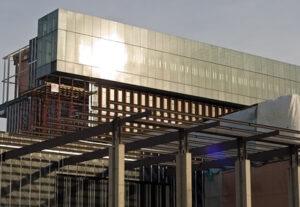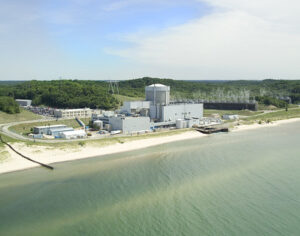Yesterday, I wrote about the opportunities that Washtenaw County is missing out on. Nearly 5,000 new jobs in vehicle battery manufacturing and EV charging are coming to Michigan. But despite the overall attractiveness of the area, we’re losing out on emerging industries and the cash they bring with them.
I suggested that one reason for this was WCC’s disinvestment in its technology programs. Since 2015, WCC’s budget for its technology programs (including math, science, engineering technology, business and computer programs, healthcare, advanced technologies and public service careers) has increased from $27.67M to $30.6M. The range of programs included in this is – more or less – the broad side of a barn. It includes all academic programs except those classified as Humanities or Social Science.
On paper, that’s an increase of $2.93M. Or is it? When you adjust for inflation, WCC’s academic spending on these technology and occupational programs has decreased by $6.11M since 2014. That’s what I mean when I say that the WCC administration is reducing Washtenaw County’s investment in the very skills we will need more of right when we need them the most.
There is no way to look at the WCC instructional budget as anything other than an investment in academics. Reducing the Instructional budget by failing to account for inflation is amateurish, at best. Current spending on these technology-oriented programs is between 9%-12% lower in 2022 than it was in the years between 2015-2021.
As a county, we cannot afford to disinvest in technology right now. Companies are making multi-million dollar and billion-dollar investments in facilities and infrastructure. They want to build capacity in North America to counteract crippling supply chain problems in Asia. Washtenaw County will see none of it because we have not invested adequately in our abilities to tune up the area’s workforce.
Washtenaw County needs technology education
In August, I looked at instructional spending at WCC when adjusted for inflation. The decline in instructional spending is precipitous. And it’s not that instructional spending in the non-technical programs (Humanities and Social Sciences) went up. It did not; it fared even worse, dropping by 20% between 2015-2022, when adjusted for inflation.
If Washtenaw County expects to create comparatively high wage jobs, we need to improve the technical and occupational education programs at WCC. And remember, we’re in a rich community. The residents of Washtenaw County provide WCC with all the money it needs to upgrade and update programs that support new investments.
Unfortunately, the current administration diverts that money to pay for some decidedly non-academic things. Instead of investing in classrooms, it invests in conference rooms. Rather than hire full-time faculty to design new academic programs, it hires new Vice Presidents. It builds quasi-private health clubs and fantasizes about building hotels. And it draws up plans for an “Advanced Transportation Center” that offers only rudimentary support for academic programs, and it publicly admits the building was really designed as another events space.
Washtenaw County needs (and funds) investment in technology programs at WCC. Instead, we’ve gotten dozens of administrators and unsustainable debt.
Photo Credit: Steve Sellers , via Flickr
















































